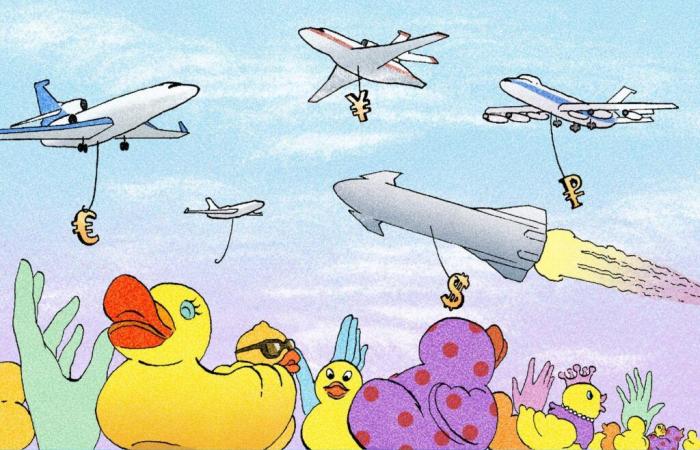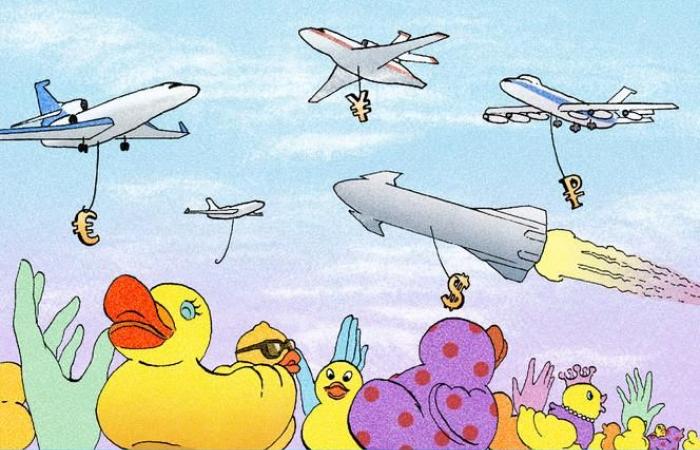“Trash vortex”, by Mathieu Larnaudie, Actes Sud, 440 p., €23, digital €17.
FLOATING ISLANDS
This is a book that the literary season has somewhat neglected – its length and density are undoubtedly the cause – and which nevertheless stands out from the ordinary. Trash vortex does not at all have the appearance of a typical French novel: firstly because it takes place in an environment not usually frequented by current French literature, that of the ultra-rich, then because it stirs up a quantity of characters, materials, countries and history in a chaos-world that reminds us of Don DeLillo or William Gaddis (1922-1998). Now Mathieu Larnaudie locates the main action of his fiction in Paris, in a private mansion opposite Notre-Dame, owned by the very rich heiress of a large industrial empire, Eugénie Valier, known as “la Valier” (with this touch Ancien Régime underlying the language of the powerful). Feeling the end of the world coming at the same time as her own, this woman decides to liquidate her group to transform it into an ecological foundation responsible for cleaning the oceans.
The “trash vortex”, or the “oceanic gyres”, are these masses of plastic waste moving in shoals, real continents floating on the seas and of which are one of the symbols the 30,000 yellow plastic ducks, blue turtles and green frogs from the Friendly Floatees brand which fell from a cargo ship in 1992. Eugénie Valier’s Terra Viva foundation thus has the mission of returning the ocean to its natural inhabitants, of cleaning these gyres which present themselves as “Atlantis of polymers on which we could almost set foot (…)which, in reality, barely visible to the naked eye, are more like a sort of indistinct broth where shredded garbage intermingles and macerates between two waters and where the density of plastic particles is six to seven times higher than that of zooplankton ». By a fantastic mirror effect, the terrestrial space where we finally worry about the seas is presented in the novel as a gigantic floating world, where the flows of information, money, rich people who move in the blink of an eye of time in the four corners of the planet also form whirlwinds, unstoppable flows created by the dynamics of advanced capitalism, colossal masses, sprawling and in perpetual motion.
We have spoken of river novels for works which, like Jean-Christopheby Romain Rolland (1904-1912), or The Thibaultsby Roger Martin du Gard (Gallimard, 1922-1940), followed the entire course of an existence or a generation; we can then say of Trash vortex that it is an ocean novel when, in five parts like the five great marine expanses, it carries away in whirlwinds the floating debris of our unearthed world.
You have 48.34% of this article left to read. The rest is reserved for subscribers.







